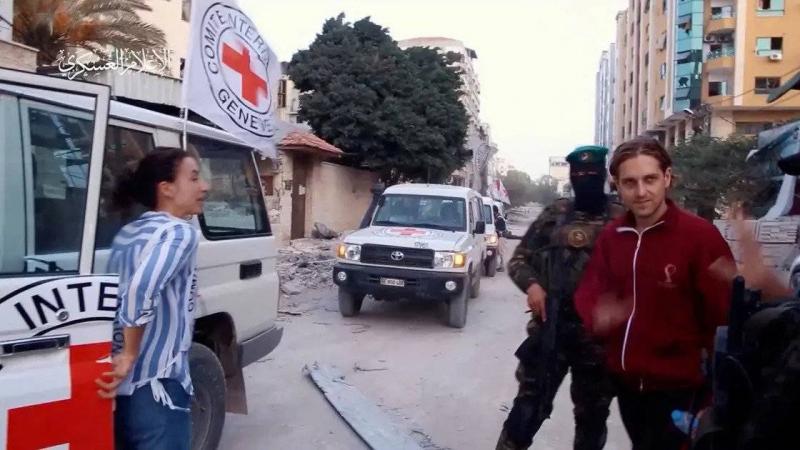In a story resembling a film, a Russian-Israeli prisoner managed to escape after being captured by Palestinian factions in the Gaza Strip on October 7th. Roni Kriboy, who also holds Russian citizenship, managed to escape for four days, wandering around the besieged Palestinian territory, attempting to reach the border fence but was unable to do so.
His aunt, Yelena Majd, revealed in an interview with Israeli radio on Monday evening that the 25-year-old was among the first to be captured last month when militants from Hamas and other Palestinian factions infiltrated the Nova music festival in the Negev desert, taking dozens hostage and leading them into the Palestinian territory.
She explained that "the building he was placed in after his abduction was bombed and collapsed, allowing him to escape." She stated: "He ran away after he was injured in the head and tried to reach the border but got lost and hid for four days before being caught by residents of Gaza and returned to the factions," according to her claims, while noting that his health is good now.
Kriboy's release was not officially part of the prisoner exchange deal that took place between Israel and Hamas, which included only women and children from both sides, as well as some Thai workers and individuals of other nationalities. Hamas attributed his release to a request from Russian President Vladimir Putin and Moscow's supportive stance towards the Palestinian cause, according to their interpretation.
It is worth noting that Roni's aunt mentioned that the young man's parents moved from Russia to Israel in 1992, six years before his birth. She said: "The boy was born here and has lived here all his life. He barely speaks Russian."
Several recently released Israelis confirmed that Israeli bombing was sometimes close to them, which led their Hamas guards to occasionally evacuate their positions and leave the Israelis alone in a room, according to Israeli broadcasting authorities. They explained that food and drink were scarce even for the guards themselves. One detainee confirmed that "the health conditions were very bad," describing the long stay underground as a constant terror, referring to the tunnels used by Hamas where an estimated 240 prisoners were held, according to Israeli authorities.




